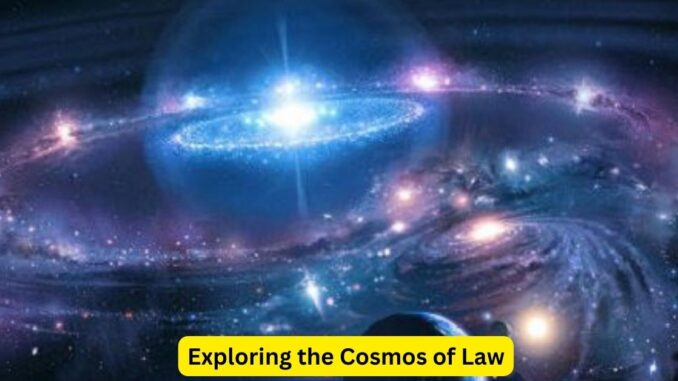
The legal universe is a vast and intricate cosmos, comprising a multitude of laws, regulations, and principles that govern human behavior and societal interactions. Like the cosmos, it is both awe-inspiring in its complexity and subject to constant evolution. This article embarks on a journey to explore the diverse elements that make up the legal universe, from its foundational principles to its far-reaching applications in society.
The Foundation: Principles of Law
At the heart of the legal universe lie foundational principles that serve as its building blocks. These principles, such as justice, fairness, and equality, form the bedrock of legal systems around the world. They reflect fundamental human values and guide the development and application of laws.
Moreover, the rule of law serves as the gravitational force that governs the legal universe. It ensures that laws are applied consistently and fairly, providing stability and predictability in society. Under the rule of law, no one is above the law, and everyone is entitled to equal protection and treatment under it.
The Constellations: Branches of Law
Just as the cosmos is dotted with constellations, each with its own distinct pattern, the legal universe is divided into various branches of law. These branches encompass different areas of human activity and address specific legal issues.
- Civil Law: Concerned with disputes between individuals or organizations, civil law covers a broad range of matters such as contracts, property rights, and personal injury claims.
- Criminal Law: Focused on offenses against the state or society, criminal law defines prohibited conduct and prescribes penalties for violations. It encompasses crimes ranging from theft and assault to more serious offenses such as murder and fraud.
- Constitutional Law: Governing the structure and powers of government, constitutional law establishes the framework for the exercise of state authority and protects individual rights and liberties.
- Administrative Law: Regulating the activities of government agencies and officials, administrative law ensures that administrative decisions are lawful, transparent, and accountable.
- International Law: Addressing relations between states and the conduct of international organizations, international law governs issues such as diplomacy, trade, human rights, and armed conflict.
The Cosmic Dance: Legal Dynamics
Like celestial bodies in orbit, the legal universe is in a constant state of motion, driven by dynamic forces and interactions. Legal dynamics encompass the processes through which laws are created, interpreted, and enforced.
- Legislation: Laws are enacted through legislative processes, where elected representatives debate and vote on proposed statutes. Legislation reflects societal values and addresses emerging issues, shaping the legal landscape.
- Judicial Interpretation: Courts play a vital role in interpreting and applying laws to specific cases. Through judicial decisions, judges interpret legal principles, clarify ambiguities, and establish precedents that guide future rulings.
- Enforcement: Law enforcement agencies and judicial authorities are responsible for enforcing laws and ensuring compliance. This involves investigating alleged violations, prosecuting offenders, and imposing sanctions or penalties when necessary.
Conclusion: Navigating the Legal Cosmos
The legal universe is a vast and intricate realm that touches every aspect of human existence. By exploring its foundational principles, branches of law, and dynamic processes, we gain insight into the complexities of legal systems and their profound impact on society. Like astronomers charting the cosmos, lawyers and legal scholars navigate the legal universe, seeking to understand its intricacies and uphold its principles of justice and fairness. As we continue to explore this vast cosmos of law, we uncover new insights and possibilities, enriching our understanding of the world we inhabit.

Leave a Reply